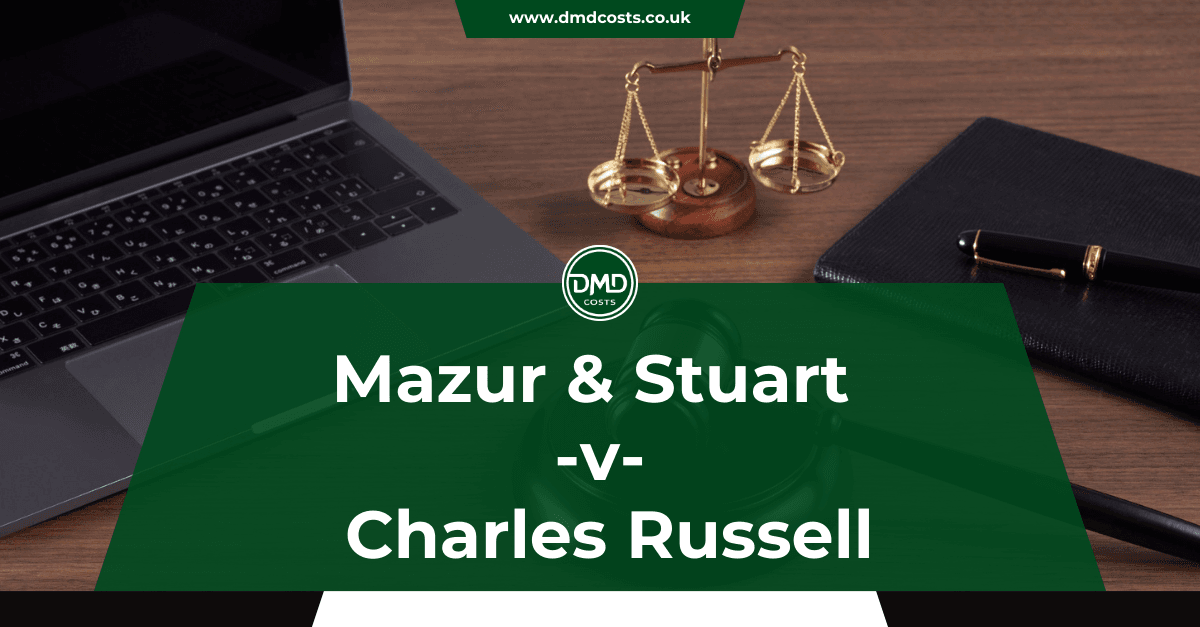

Updated: 25/09/2025
Reading time: 5–7 mins
Mazur & Stuart v Charles Russell Speechlys [2025] EWHC 2341 (KB) confirms that unqualified staff may assist a solicitor but cannot “conduct litigation”, even under supervision. The High Court also set aside a £10,653 costs order, making no order as to costs on appeal.
________________________________________
• Free trial: We’ll draft & negotiate one bill to settlement at no charge.
• After that: £500* fixed fee per file (all-in). *HDR & MOD NIHL
• SLA: 5 working days. Costs Lawyer–led. UK-wide, paperless.
CTA: Book your free first bill → info@dmdcosts.co.uk | +44 7724 108 587
________________________________________
• Unqualified employees cannot conduct litigation. They can support, but conduct must clearly sit with an authorised, qualified person.
• The court endorsed a “question of fact and degree” approach—look at who takes decisions, approves pleadings, and assumes responsibility for formal steps.
• A first-instance order requiring the defendants to pay £10,653 when the stay was lifted was set aside on appeal → no order as to costs.
• Neutral citation: [2025] EWHC 2341 (KB).
________________________________________
The judgment arms paying parties with fresh Points of Dispute around entitlement and recoverability where files suggest paralegal-led conduct. Expect scrutiny of:
• Signatures/approvals on claim forms, PoC and applications.
• Time entries implying strategic decisions by unqualified staff.
• Delay/stay-related time (reasonableness & proportionality if entitlement was in doubt).
________________________________________
We draft to the judgment. Our workflow and narrative style reflect the fact-and-degree test—evidencing solicitor control where it existed and isolating tasks that are purely mechanical.
• Pre-bill audit (free on the first file): sign-offs, role clarity, delegation vs conduct.
• Bill drafting that anticipates PoDs: explicit supervisor approval lines; admin time ring-fenced.
• Strategic Replies: we neutralise entitlement points with file evidence and concede low-yield items tactically to protect the big ticket.
• DA-ready structure: clear chronology, work-type taxonomy, and proportionality signposting.
________________________________________
• Signature discipline: formal documents signed/approved by a qualified person.
• Time-entry wording: “Drafted by [Paralegal]; approved by [Solicitor]; [Solicitor] responsible for conduct.”
• Role separation: paralegals = mechanical tasks (bundles, searches, service)—not “conduct”.
• Pre-issue entitlement check: named conducting fee-earner; PC in force.
• Stay prevention: 10-minute partner review before issue.
• Vendor oversight: if using a recovery partner, ensure a solicitor truly conducts the case.
________________________________________
• Free first bill to settlement (trial).
• £500 all-in per file thereafter (drafting + negotiations + settlement paperwork).
• HDR & MOD NIHL specialists. Every penny recovered.
CTA: Send your first file → info@dmdcosts.co.uk
________________________________________